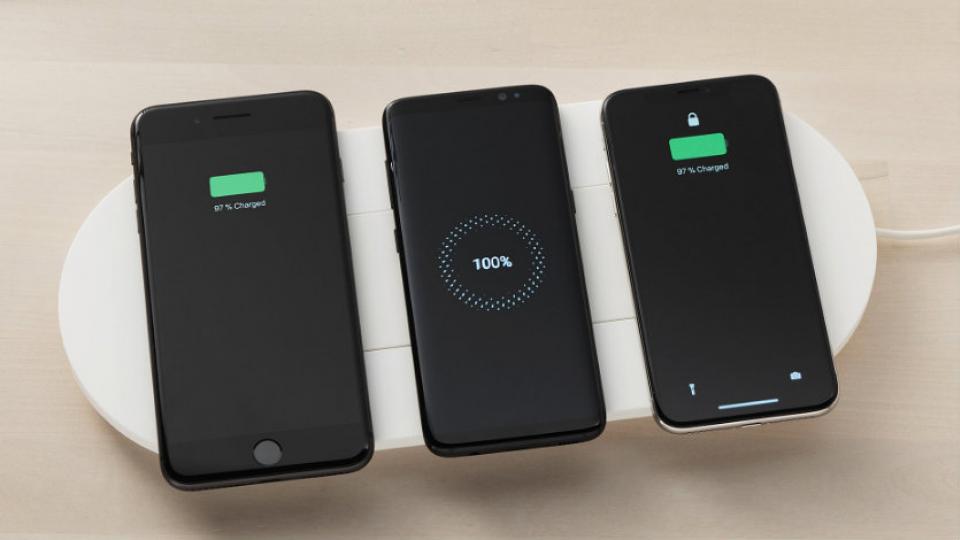Over the years, we have seen advancements in charging technologies that improved smartphone charging. Examples include fast charge and Quick charging technologies, wireless charging, reverse wireless charging, and the likes. Earlier on this platform, we’ve explained all you need to know about wireless charging and how you can determine if your phone can be charged wirelessly or not. Now, for those with smartphones compatible with wireless charging, we’ll discuss the benefits and disadvantages of wireless charging. Let’s start with the advantages.
Pros of Wireless Charging
1. Charging multiple devices
One advantage that wireless charging has over the conventional wired smartphone charging is the fact that users can charge multiple devices using a single wireless charger/charging pad — given that the charging pad is big enough to accommodate multiple devices.
2. Convenience
Charging smartphones wirelessly is also super convenient. That’s one of the major reasons why you’d see many smartphones users lean towards wireless charging. If your phone supports wireless charging, all you need to do is simply place it on your charging pad; there’s no cable mess to deal with.
3. Safety
It is also safer to charger your device wirelessly than using an adapter and USB cords. First, with wireless charging, there’s less risk of power surge or electrical damage to your device.
4. Durability
Charging your smartphone with the conventional way requires you to constantly plug and unplug your charger/cord from your smartphone port. This can quickly cause your phone’s port to wear out and get damaged in the process. Wireless charging is more durable and reduces the likelihood of damaging your smartphone port. It has also been reported that charging pads have a longer life span than cables.
5. Reduces Overheating and battery damage
Most wireless charging pads and mats are smart. They are able to detect when your smartphone’s battery is fully charged and automatically stop charging it. A typical wireless charger shuts off when your battery is full, saving energy and preventing overheating in the process.
Cons of wireless charging
1. Additional expense
All new smartphones are commonly shipped with a charging brick and USB cord only — even if they support both wired and wireless charging. It’s rare to see a smartphone with a wireless charger out-of-the-box. This leaves users to purchase charging pads if they would love to charge their device wirelessly. Though not all wireless chargers are expensive, buying one could be burdensome if a user is on a budget.
2. Prevalence
Wires, cables, and cords are everywhere. You could leave your charger at home and be sure to find/borrow one to charge your phone at work, school, from a stranger at the park, airport, or wherever you go. The same thing cannot be said for wireless chargers. Wireless charging is perfect for use at home or in the office. What if you visit your colleague at home and he doesn’t have a wireless charging pad?
3. Charging alignment
Another problem with wireless charging is that you have to ensure your phone/device is properly placed and aligned on the wireless charger. Else, your device wouldn’t charge. Accidentally moving your phone away from the charging point would disconnect your device from the charging pad.
4. Phone use during charge
This is another very popular downside of wireless charging. Using your phone and charging it simultaneously is impossible with wireless charging. You have to place your device on the charging mat during the charging period.
5. Portability
This is a no-brainer. You can easily squeeze your USB cable and charger into your pocket. The size(s) of a charging mat/pad makes that almost impossible. Wireless chargers aren’t convenient to carry around unlike cables. Big charging mats may even require a backpack to be moved around ’cause it would be weird holding a skateboard-size charging pad everywhere you go.
6. Slower charging
If you’re always on the go or use your device quite a lot, you shouldn’t charge wireless. This is because it takes more time to charge a battery wirelessly than using a wired charger. Reports have it that compared to using cables, wireless charging takes 30-80% longer to fully charge a device. Wireless charging is a very cool technology. But just like every other tech that exists, has its merits and demerits. what do you love (or dislike) the most about wireless charging?



